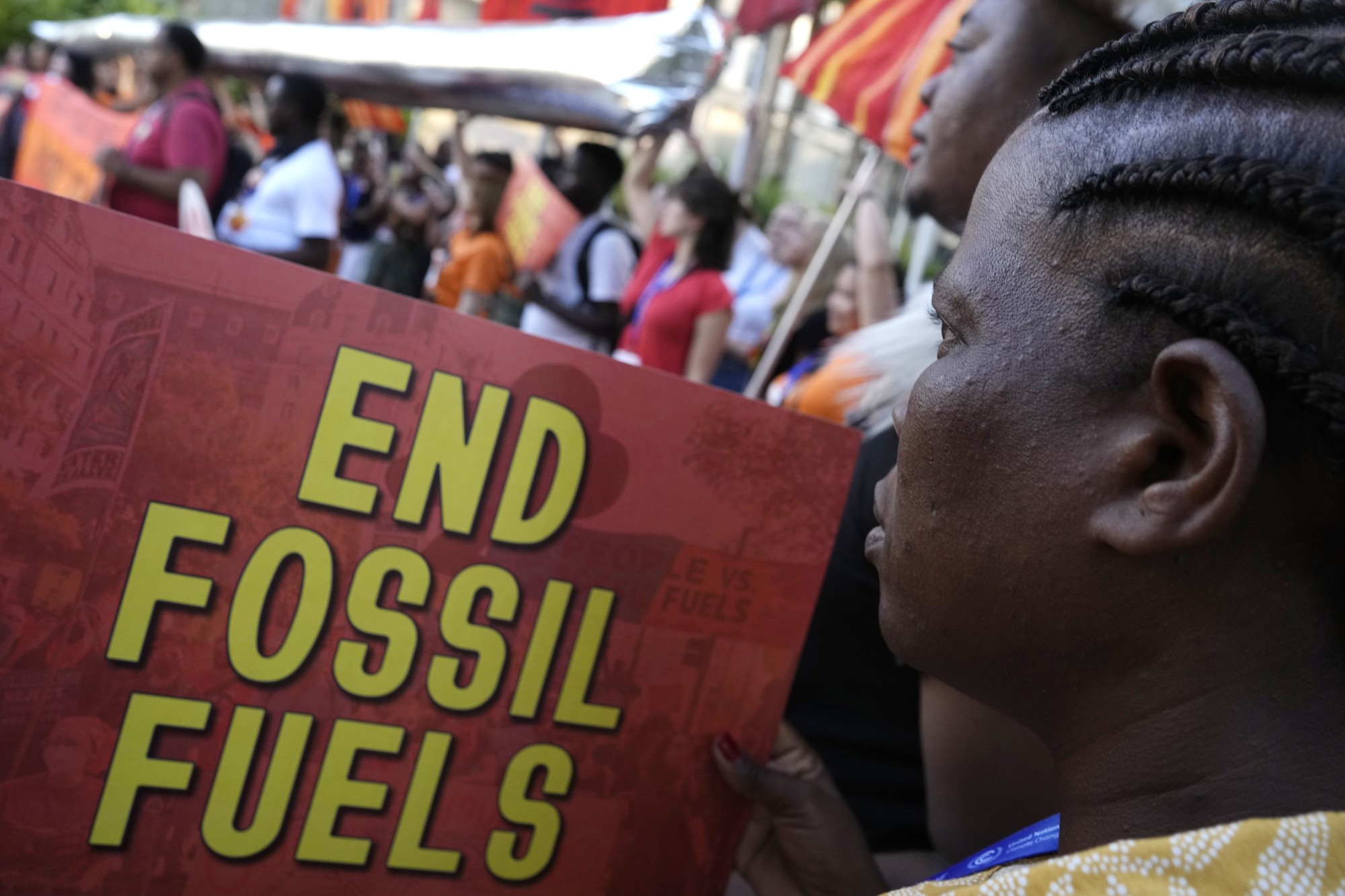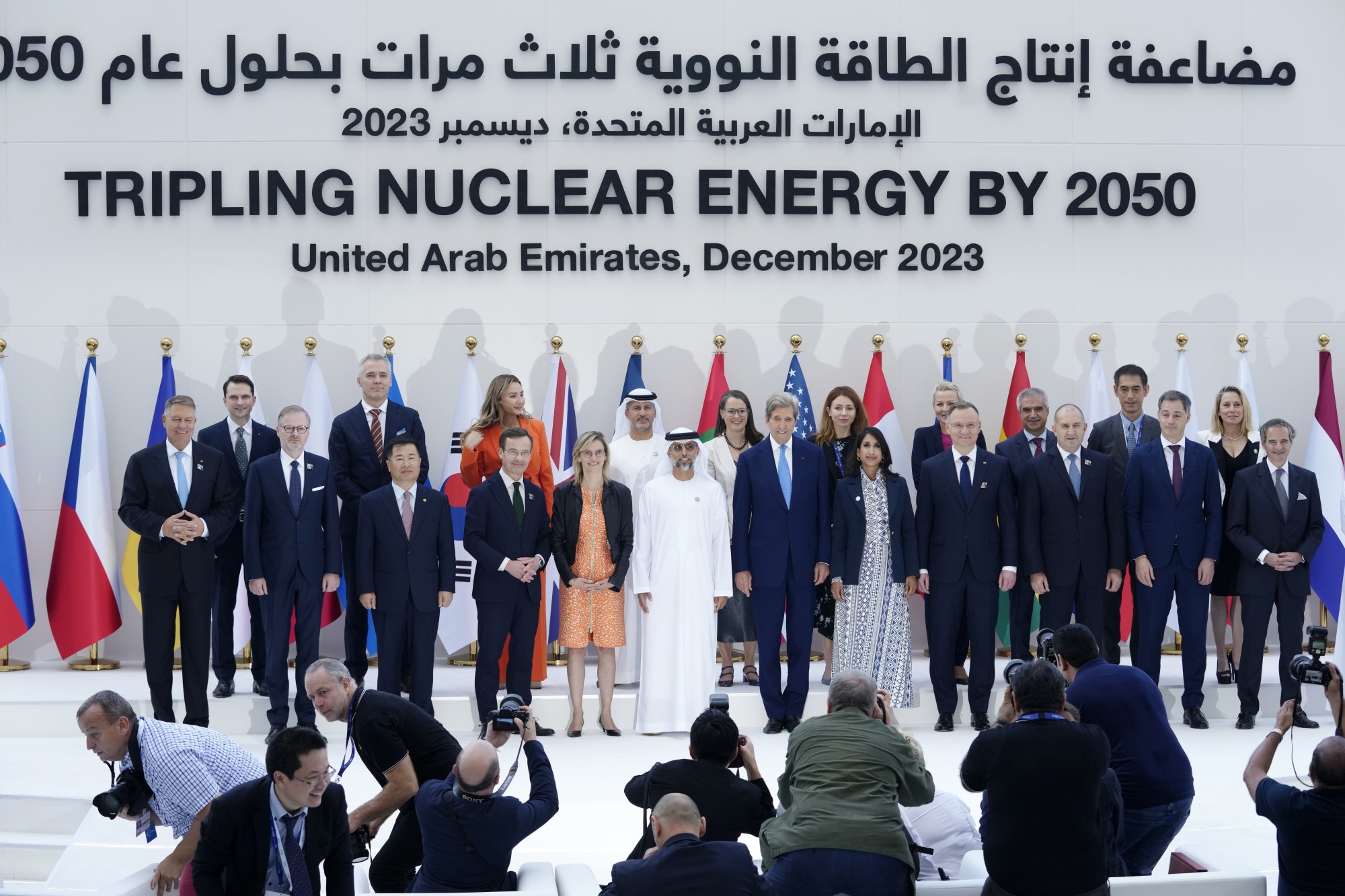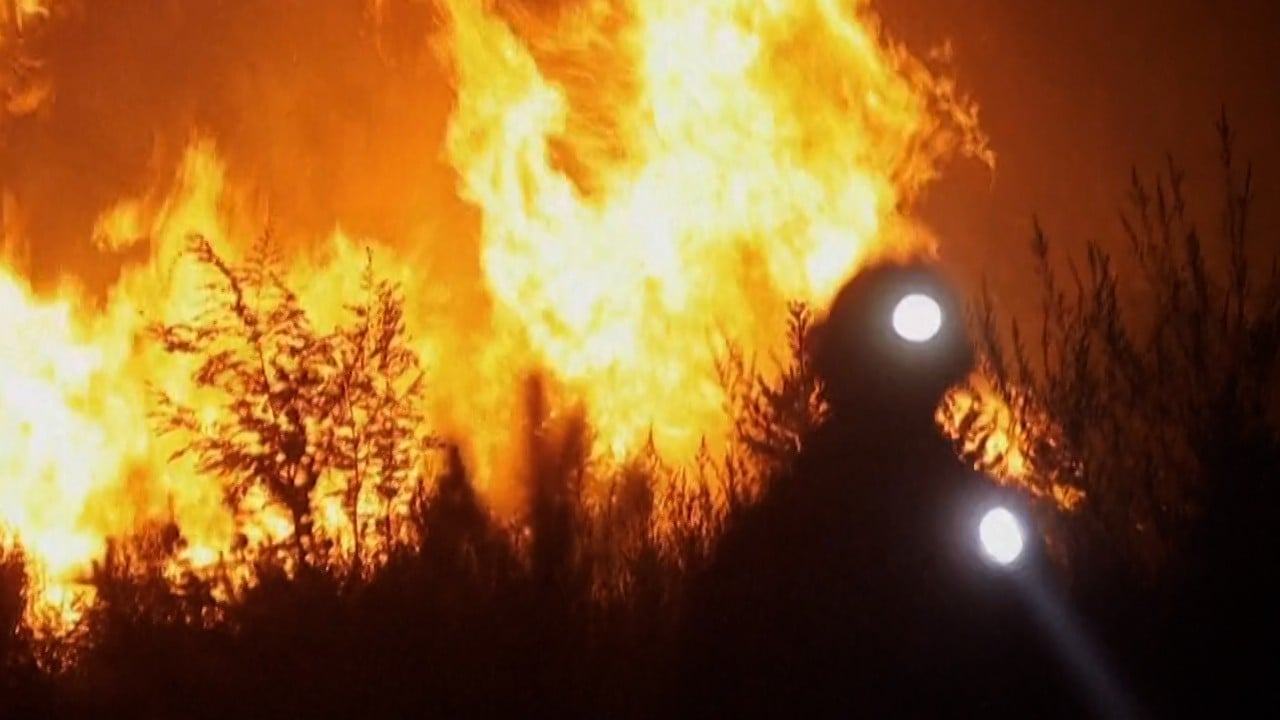This allowed governments to then develop a road map, print vast amounts of money as needed and leverage the private sector to assist, with this collective approach geared towards protecting the public good.
What the public now deserves is a plan that is brutally honest, even draconian, but which makes it very clear we either act in a dramatic fashion to address climate change impacts or risk the reality that our lives and those of the next generation are going to be miserable. It is as simple as that.
Only 7 years left in global carbon budget to limit warming to 1.5 degrees: report
Only 7 years left in global carbon budget to limit warming to 1.5 degrees: report
We should not be afraid of people being afraid. When humans are scared and fearful, they will stop believing in fantasy solutions and instead get practical, adapt, and create previously unthinkable remedies to save themselves.
After all, decades of denial followed by meek approaches only made the problem worse. This is now all coming home to roost as some of our “best” solutions to address climate change – technologies like carbon capture and storage, and market-based mechanisms like carbon credits and ESG – are all proving to be denial-based approaches, cooked up by self-serving business and political operatives. In addition, they have been repeatedly called out for ineffectiveness, confusion, or scandal.
What is needed is robust and no-nonsense political will and steadfast action. This is an imperative to shock all actors out of their current complacency or defeatist stance, and at the same time counter the hijacking of the issues by market players driven by self-interest. Decades of pandering to narrow and short-term political agendas and pussy-footing have so clearly failed.

Are governments willing to take drastic measures? And if not, why not? Which governments are capable of acting in this manner, and what type of political and governance system will be best suited to responding to these challenges?
This is the defining political and governance challenge of our time. Only clear political objectives will stand a chance of saving societies from the worst impacts of a global climate monster that has gone amok.
It is a monster of the Anthropocene – created by human economic activity – and reining it in will require fear of the climate beast and the ability to impose drastic policy actions without fear or favour. Political objectives driven by back-to-basics policies will then help trigger the practical innovation needed – a combination which must include a blend of social, economic, and technical instruments.
The reality is that the serious work of systemic change – at scale – must be led through government bodies with the requisite political power and intent, well-defined objectives, and most importantly the authority to act without fear or favour.

Without the political strength and determination of the state, nothing will happen – as is the case, right now, in many parts of the world: climate change and other existential threats make for good slogans, but weak manifestos.
Leaders at Cop28 should not shy away from discussing the reality – one well known to the public – that governments and businesses have engaged in a charade to date.
They have not confronted the bittersweet truth that they have turned a blind eye and enabled a global economic system to thrive on an unholy basis: underpricing of resources, externalising of true costs, and religiously pursuing economic growth reliant on promoting relentless overconsumption and wastage. This is the catalyst for the existential threats we face ranging from climate change and unprecedented biodiversity loss, to food insecurity and the scourge of plastics.
Nations rally behind renewables at Cop28 climate talks
Nations rally behind renewables at Cop28 climate talks
Denial is no longer an option and is unconscionable. Confront and change this ugly basis of our economic activity, or we are doomed to boil. The widespread refusal to change this operating model of the economic system stems from a deep-seated fallacy: that societies needn’t sacrifice the ability to produce and consume endlessly to fulfil an unquenchable desire for more of everything – as if it is a right that must not be curbed – if a silver bullet solution exists. But no such solution exists, nor should we hope for one to appear in the time frame we need.
This raises the question: should our freedom and right to consume remain unfettered?
Yes, this is depressing and even scary for some to contemplate. But it is the undeniable reality, and it is hugely irresponsible to deceive the public with myths about a net-zero utopia led by free market forces, wherein our freedom to consume whilst externalising the true costs is treated as a sacred cow.
Thus, there is clearly a need to radically shift away from the failed tactics of “let’s play it safe and not frighten the public” to one where governments spell out the truth about the dire situation, and the likely catastrophic outcomes, then announce a redesign of society, for a world that is slowly and surely boiling.
The sacred cow has to be slain. Even if you are a climate-change denier, there are a host of existential threats facing humanity that point to the need for a complete overhaul, all linked to our economic system: the wars in Ukraine and Palestine; the fact that nine out of 10 people breathe polluted air, resulting in nearly 7 million deaths every year; unprecedented biodiversity loss and mass extinction, looming global food-security issues or the unknown risks of our greatest invention, AI – just to name a few.
Most importantly, governments need to come clean and break free from the ideological clutches of classical free-market economics – which have been progressively mainstreamed around the world – and instead, announce that the transformation of our economic system can’t be led by free markets, or a private sector solely motivated by shareholder interests.
For far too long – and we are paying the price now – too many global conventions, including too many UN climate-change summits, have misled the world by framing the opportunities to meet these challenges with businesses leading the way, but these have clearly not manifested.
The profit motive remains their north star, and we cannot blame them for that – by mandate, companies are structured not to address wider societal issues or the common good. Governments seduced by these ideas abdicated their responsibilities to the private sector, resulting in few solutions. This is why it is now time for governments to step in with draconian actions before we all pay the price for their pandering.
Chandran Nair is the founder of the Global Institute for Tomorrow and member of the Club of Rome. He is also the author of Dismantling Global White Privilege: Equity for a Post-Western World and The Sustainable State: The Future of Government, Economy and Society.


